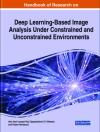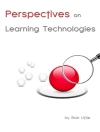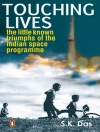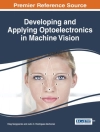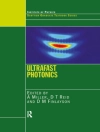This book introduces a unique 3D printing method that prints metal parts by ejecting metal micro-droplets: a low-cost, contactless, and environmentally friendly 3D printing technology. This book follows a deductive approach to describe the fundamentals of metal droplet-based 3D printing and reveal the relationships and unique features among multiple specific techniques used in droplet-based 3D printing. It starts with a general description of the principles and techniques involved in this technology and then focuses on the details of several specific metal droplet-ejection methods. Next, it puts forward various specific 3D printing techniques and illustrates their applications.
This book is a valuable reference for scholars and researchers who work on metal 3D printing and other related areas. It is also used as a textbook for college graduate courses in mechanical manufacturing and material processing.
Table of Content
Introduction.- Fundamental theory of uniform metal droplet ejection and deposition.- Equipment for uniform droplet ejection.- Ejection of continuous uniform droplet stream and its control .- Drop-on-demand ejection of uniform metal droplet and its control.- Uniform solder droplet deposition and its 3D printing technology.- Uniform aluminum droplet ejection and deposition and their controlling techniques.- Microstructure evolution of uniform aluminum droplets during 3D printing.- Application prospect of 3D printing based on uniform metal droplet ejection.
About the author
Dr. Lehua Qi is a professor of Mechanical Engineering at Northwestern Polytechnical University (NPU), China. She received her Ph.D. degree in System Engineering from NPU in 2004 and worked as a visiting scholar at Cardiff University from 2008 to 2009. She is the chair professor of the major of Machinery Manufacturing and Automation at NPU, founder and director of the Micro-manufacturing Lab at NPU, and a member of the academic committee of NPU and the key lab of Ministry of Education—Contemporary Design and Integrated Manufacturing Technology. She has published two academic books and over 300 research articles in refereed journals and conference proceedings and received more than 60 patents. She is a pioneer on fundamental and applied research in droplet-based 3D printing and metal matrix composites. She has been a principal investigator for more than 20 projects funded by the major national agencies and programs, including the National Natural Science Foundation, 863 Key Projects Program, National Defense Pre-Research Foundation, Aeronautic Science Foundation, and so on. In addition, she has received many prestigious awards including the Second Prize of the National Technology Invention Award in 2012, the National Model Teacher Award in 2014, Shaanxi Outstanding Teaching Award in 2013, and several others.
Dr. Jun Luo is an associate professor, School of Mechanical Engineering, NPU. He received his Ph.D. in mechanical engineering in 2010 from NPU, under the supervision of Prof. Lehua Qi. He was a postdoctoral researcher in NPU from 2010 to 2012 and a visiting scholar at University of Twente, Netherlands, in 2015. He has been working in developing metal droplet-based printing technologies for 15 years with significant contributions to 3D printing using metal droplets, especially for droplet-based 3D printing with working temperatures higher than 1000 °C. His research interests are in the fundamental research about molten metal dropletejection, impact, and deposition behaviors. His work at University of Twente was on the nanosecond laser-induced forwards transfer system for micron-scale functional metal structures. He has multiple high impact publications in the most reputable journals in this area, such as Small, International Journal of Machine Tools and Manufacturing, Journal of Materials Processing Technology, Applied Thermal Engineering, Materials Letters. His research has been funded by the National Natural Science Foundation of China, Aeronautical Science Foundation of China, Science and Technology Fund Program, etc.
Dr. He Shen is an associate professor, Department of Mechanical Engineering, California State University, Los Angeles. He received a Ph.D. degree in Mechanical Engineering from University of Central Florida in 2014. His research interests are in robotics and autonomous systems, dynamics and control, mechatronics and instrumentation, modeling and simulation, and image processing and computer vision. He has published more than 30 scientific articles in reputable journals and conference proceedings. As senior personnel, his research work has been supported by the National Science Foundation, National Aeronautics and Space Administration, and Department of Education of the United States. He was a recipient of the Faculty Mentor Honoree in 2020 and Exceptional Levels of Service to Students Award in 2017 from California State University, Los Angeles, and the Outstanding Dissertation Award in 2014 from College of Engineering and Computer Science at University of Central Florida.
Hongcheng Lian is currently a Ph.D. student at School of Mechanical Engineering in NPU. He received his Bachelor of Mechanical Engineering in 2015 from NPU, China. He then enrolled in the doctoral programs of Mechanical Engineering under the supervision of Professor Lehua Qi at NPU, China. He was a visiting student at RWTH Aachen University, Germany, in 2014–2015. His current research focuses on uniform droplet printing of graphene/CNTs, droplet evaporation and coffee-ring effect, droplet-based micro-patterning of graphene, and metal droplet-based 3D printing. Hongcheng Lian has done seminal research work in uniform droplet printing of graphene and utilization of coffee-ring effect, and he has published a series of research papers in some reputable journals, such as 2D Materials, Applied Surface Science, Journal of Physics: Condensed Matter, Journal of Physics D: Applied Physics. Moreover, he has authorized and applied three invention patents of China. His research has been funded by the National Natural Science Foundation of China. He was awarded with National Scholarship in 2012 and 2019.


